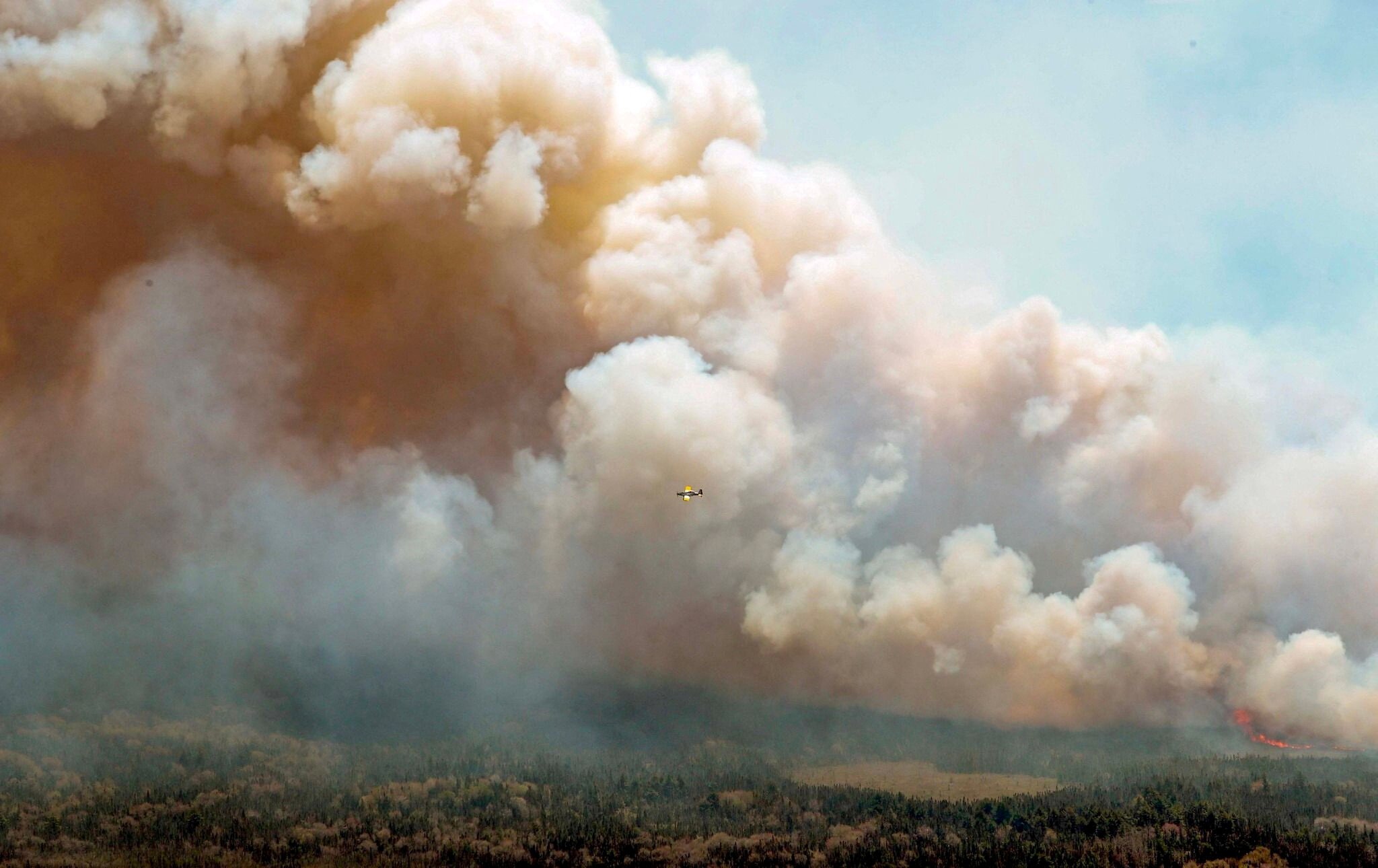
Large wildfires have been burning for a week now in parts of Canada.
Around 17,000 people have evacuated the Canadian province of Manitoba as fast-moving wildfires move across parts of the country.
The smoke from these fires, which is severely harmful for humans is moving into the United States, leaving an estimated 22 million Americans under air quality alerts this weekend.
Hot and dry weather is expected in the next few days which may make the situation even more worse.
Considering the situation, Saskatchewan and Manitoba have both officially declared states of emergency lasting for one month.
As per the reports, large parts of Alberta and British Columbia have also ordered evacuations as the fires spread.
The evacuation of residents of the northern First Nations community of Pukatawagan, is a "rapidly evolving situation", a Manitoba official told the BBC.
The Canadian Armed Forces, Manitoba Wildfire Service and Manitoba’s Heavy Urban Search and Rescue Team are using military planes and helicopters to rescue and bring people to safety from this northern community in Manitoba.
Prime Minister Mark Carney said in a statement, "The scale and complexity of these air evacuations cannot be overstated — and neither can the unwavering dedication of the teams executing them."
In Manitoba, there are currently 25 wildfires burning and out of these, 11 fires are so severe that they are considered out of control.
What's causing the rise in extreme fire conditions?
AS per the United Nations' climate organization, climate change is making the kind of weather that helps wildfires grow more often.












